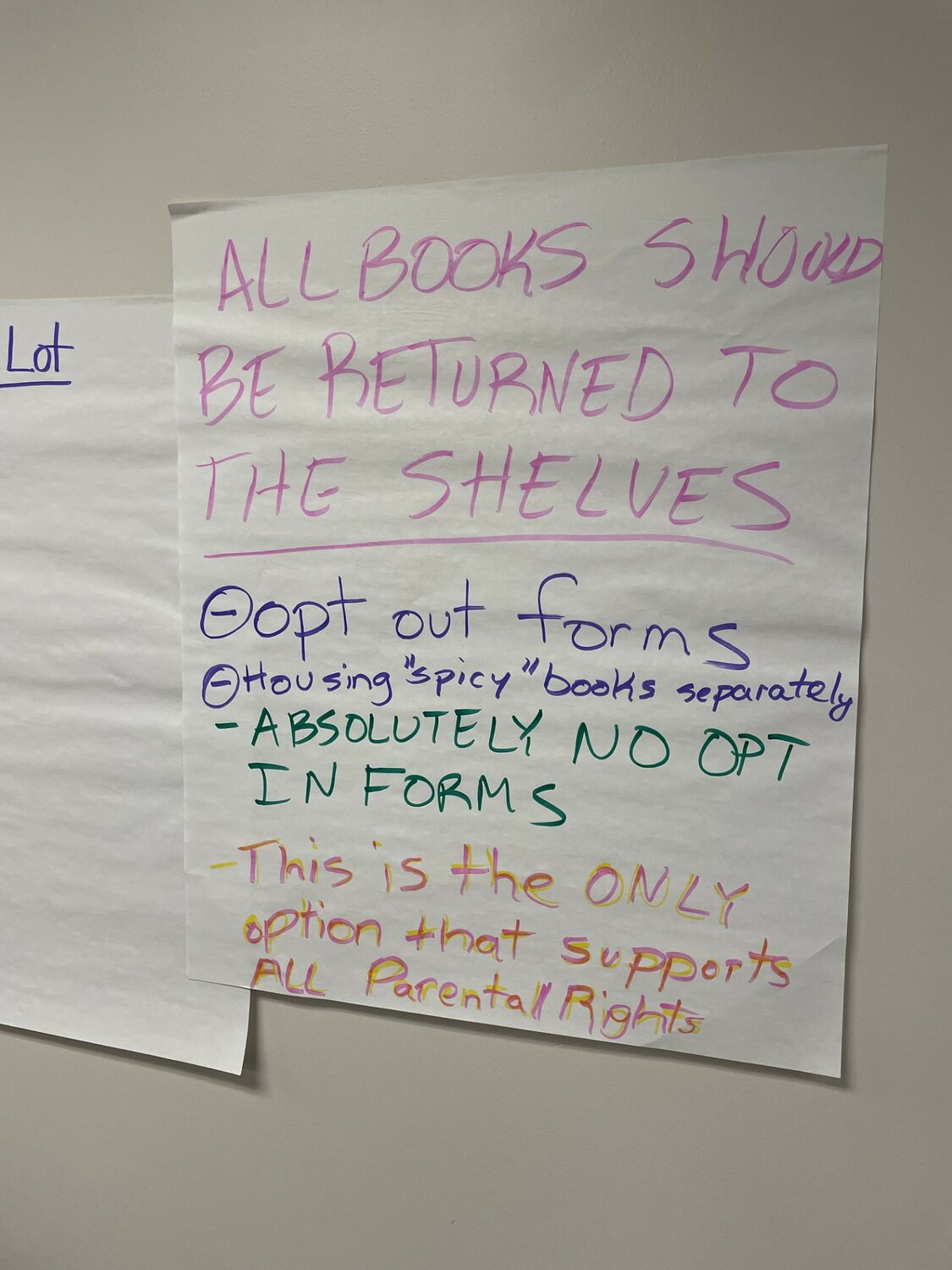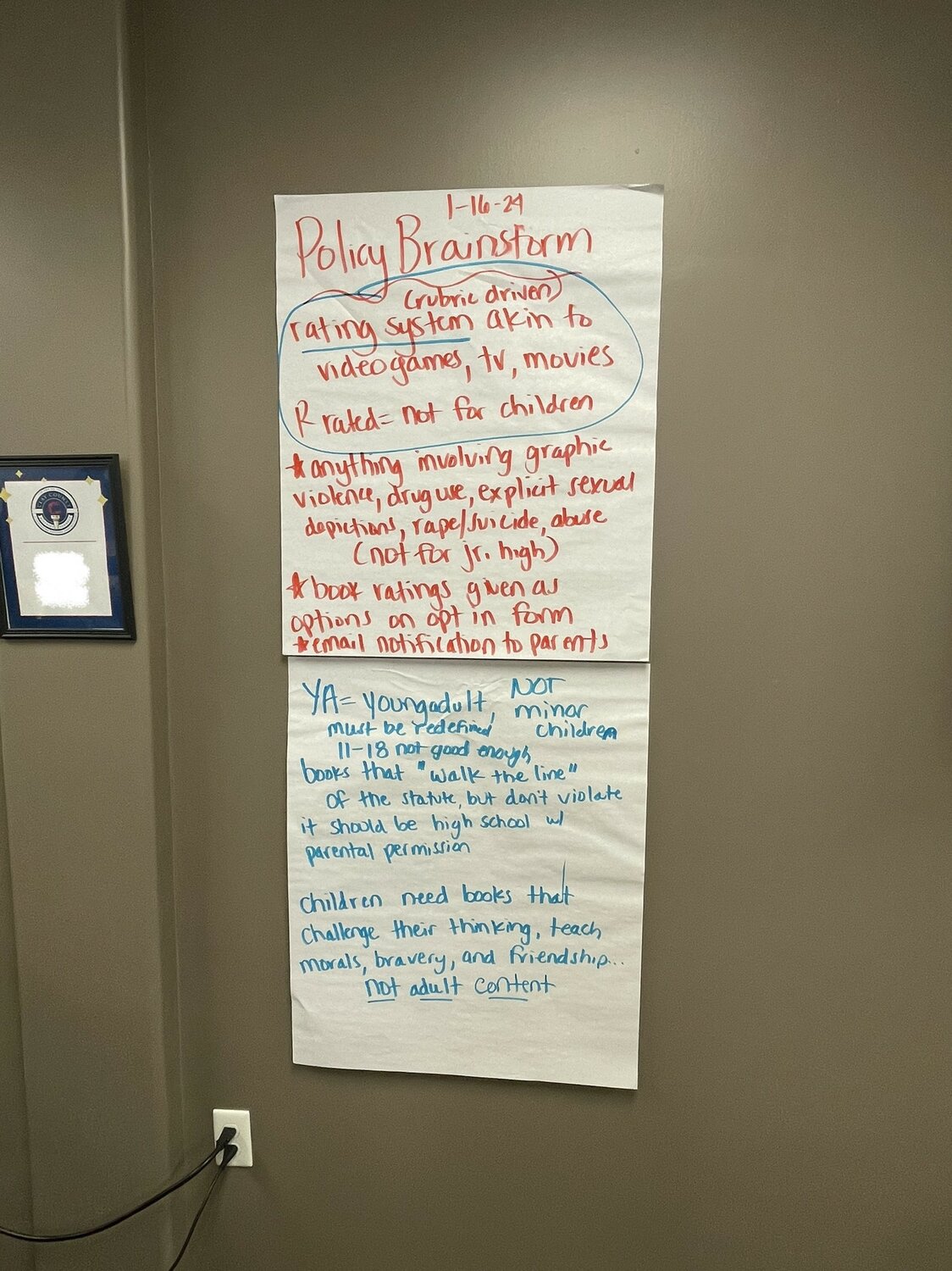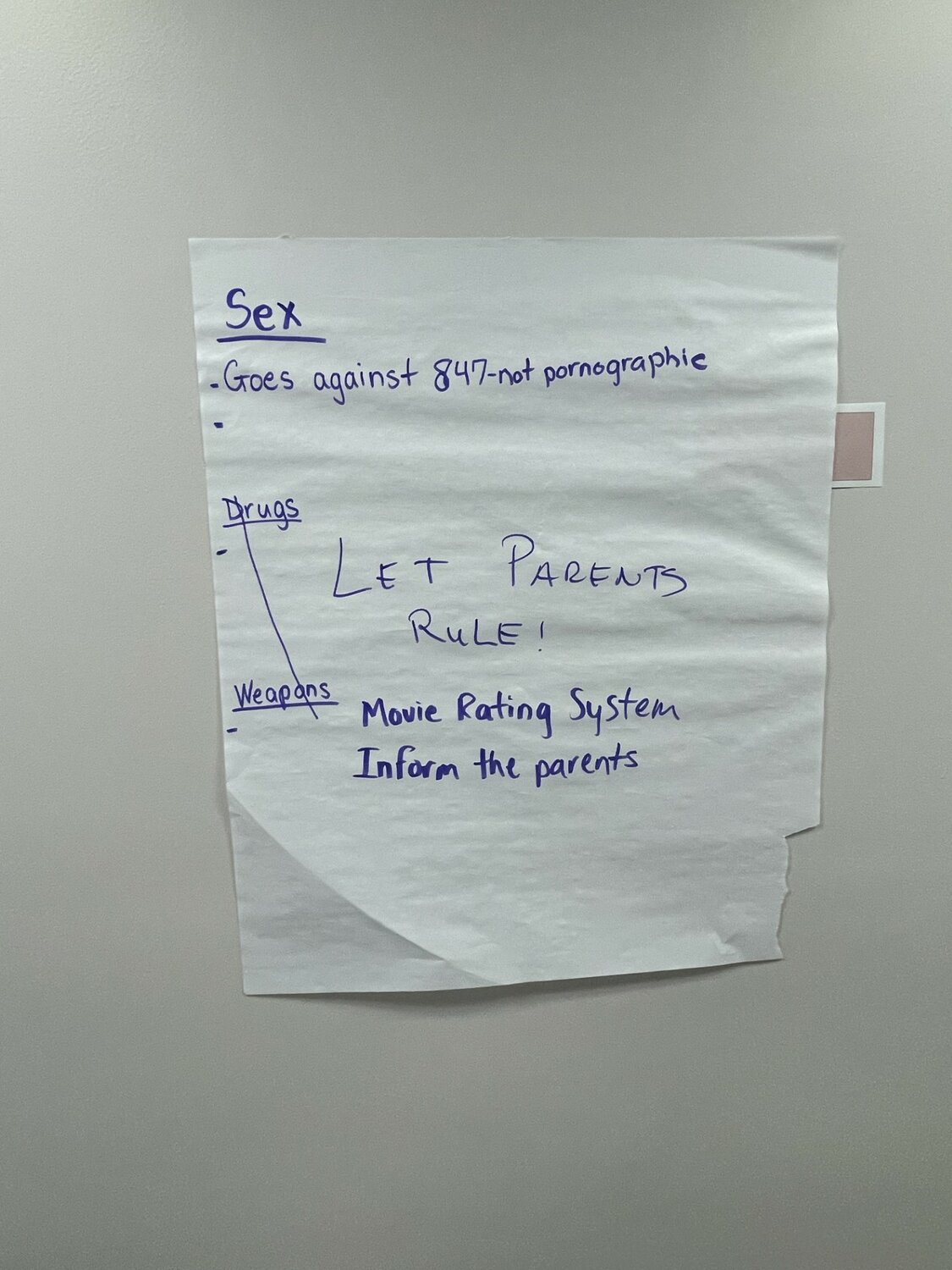The “spicy” newest chapter of the “book ban” debate
School board listens, responds to community to author new media policy
jack@claytodayonline.com
ORANGE PARK – In a move that may have been a first for Clay County District Schools, Board Members Michele Hanson, Erin Skipper and Mary Bolla invited the community to an open forum for feedback …
This item is available in full to subscribers.
Attention subscribers
To continue reading, you will need to either log in to your subscriber account, or purchase a new subscription.
If you are a current print subscriber, you can set up a free website account and connect your subscription to it by clicking here.
If you are a digital subscriber with an active, online-only subscription then you already have an account here. Just reset your password if you've not yet logged in to your account on this new site.
Otherwise, click here to view your options for subscribing.
Please log in to continueDon't have an ID?Print subscribersIf you're a print subscriber, but do not yet have an online account, click here to create one. Non-subscribersClick here to see your options for subscribing. Single day passYou also have the option of purchasing 24 hours of access, for $1.00. Click here to purchase a single day pass. |
The “spicy” newest chapter of the “book ban” debate
School board listens, responds to community to author new media policy
ORANGE PARK – In a move that may have been a first for Clay County District Schools, Board Members Michele Hanson, Erin Skipper and Mary Bolla invited the community to an open forum for feedback and suggestions. The board members said that community input last Tuesday would be used to create a new media policy for library books following months of being overwhelmed.
“We don’t want to dictate policy for you. We want you to help us decide policy,” Hanson said.
The county’s “book ban” debate received considerable attention last year following Bruce Friedman’s campaign to remove what he deemed pornography from school libraries. In the last 18 months, Friedman has single-handedly submitted more than 600 book challenges – more than one challenge a day.
The current media policy, adopted last April, allows for the return of challenged books that do not violate FS 847, which forbids books “depicting nudity, sexual conduct, or sexual excitement” without “serious literary, artistic, political, or scientific value for minors.”
For this school year, students needed a signed permission slip to “opt-in” to use school libraries.
The current media policy has been criticized for being inconsistent, opaque and having an appeal process that takes too long. These were criticisms that residents on both sides of the debate expressed during the open forum. None criticized the current media policy more than Hanson herself.
“Our media specialists have suffered under the current policy, and I have felt so bad for them,” she said.
A major discussion point was a desire for accountable, consistent community standards that objectively evaluate books.
Hanson said whether a challenged book violates FS 847 is usually black or white. But certain books are in a gray area: not deliberately pornographic but, nonetheless, contain explicit language and themes that may be inappropriate for minors. Hanson used the term “spicy” to describe these books. She cited “Heroine” by Mindy McGinnis as an example.
Parents, teachers, librarians and residents broke into groups to discuss what they wanted to see differently in the new media policy. Empowering parent choice was an agreed-upon theme. Using markers, sticky notes and posters, the groups presented their viewpoints to the school board:
• “Let me decide for my child... We don't need a separate section for 'spicy' books.” said one group.
• “All books should be returned to the shelves… This is the only option that supports all parental rights,” said another.
• “Elementary school (books) (should have) no sexual content whatsoever… pornography (has) no educational value,” was mentioned.
• “I, we, you cannot decide for other parents. Only a parent can decide for their own child… return to opt-out to allow students to read except those whose parents want them restricted,” was discussed.
• “Books that ‘walk the line’ of the statute (FS 847) but don’t violate it should be (accessible in) high school (with) parental permission,” said one group.
• “We need a rubric to grade books that violate (Florida) law… (We need) a timeline for the review process… all age-appropriate content from history should be allowed,” was also mentioned.
Two groups proposed a “movie rating system” for books, following a rubric similar to the MPAA rating system used today (G, PG, PG-13, R, etc.). One group said the line in the sand should be drawn to differentiate between what can be “spicy” and what should not be suitable.
“A lot of the ideas you shared make a lot of sense to me,” Hanson said.
Hanson was receptive to the community’s feedback. She said the school board would consider a community-proposed “opt-out” permission slip system and compare that alternative with the current “opt-in” system that is in place.
Skipper said the perspectives from the community and recommendations from media specialists would be the basis for designing the new media policy at the school board’s upcoming workshop on Jan. 23.
“Compromise is the bridge that leads to progress,” said Hanson, reading a quote from one table’s posterboard. “I couldn’t agree more.”













